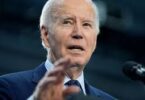Konstantin Skorkin
It’s not so long ago that Volodymyr Zelensky began his political career branded as nothing more than a puppet controlled by the oligarch Ihor Kolomoisky. Now the Ukrainian president has set his sights on removing the country’s powerful oligarchs from any decisions of state importance.
Having seen his ratings take a hit at the beginning of the year, Zelensky embarked on several drastic measures against his opponents at home. The first was a demonstrative reprisal against the leader of the pro-Russian opposition, Viktor Medvedchuk, by imposing sanctions on his TV channels and business assets. Meanwhile, Medvedchuk himself, who was previously considered untouchable, was put under house arrest.
The government presented its actions not only as targeting the Russian threat, but also as part of the battle against the sway of the oligarchs over politics. Still, the domestic sanctions that the National Security and Defense Council bypassed the legal system to introduce were criticized as an abuse of power.
To avoid being accused of favoritism and political repression, Zelensky decided to introduce a legislative framework for his crusade against the oligarchs and devise a law on “deoligarchization.” The new law provides the first legal definition of an oligarch: a major monopolist with a fortune of over $80 million and influence over politics and the media.
Those who fall into this category will, if the new bill becomes law, be subject to certain restrictions, including a ban on financing political parties and on involvement in the privatization of state property. They will have to account for their earnings, just like state officials do, and officials will be banned from holding off-the-record meetings with them.
One proposal that didn’t make it into the submitted bill was a ban on oligarchs owning media, which is currently their main means of political influence. The law would not change existing monopolies, nor does it say anything about reprivatizing illegally acquired assets. Zelensky is being careful to avoid the fate of former prime minister Yulia Tymoshenko, who ran afoul of the oligarchs after targeting their assets following the Orange Revolution.
Still, even with the compromises contained in the current draft, the law is capable of making life far more difficult for the standard-bearers of Ukrainian capitalism. The requirements the law would impose are more insulting than ruinous for the men who consider themselves the owners of Ukraine. Zelensky wants not so much to dispossess them of their business empires as to put them in their place: to show them that the president is no oligarch’s puppet, but the supreme leader of the nation.
Ukraine’s oligarchs once managed to privatize the Ukrainian parliamentary system by buying up political parties and TV channels. Now the president is filling that system with his own content: the parliament and government merely implement the will of the presidential vertical, and big business must accept that or run the risk of soft deoligarchization giving way to a harsher process. This is all far from the ideals of constitutional government, of course, but is entirely in keeping with the reality on the ground in Ukraine.
It was expected that the deoligarchization law would run into serious trouble in parliament, but the president managed to get enough votes for it to pass in its first reading. The second reading has been postponed until the fall, and there is a risk that innumerable amendments will draw out the process. Some backroom bargaining to soften the law further is also inevitable, but still, Zelensky has already scored a tactical victory. It looks like Ukrainian big business has resigned itself to having to behave more modestly under the new order.
For now, there is no evidence to support speculation that the new law could inspire the oligarchs to form a fearsome united front to take on Zelensky. So far, they have preferred to solve their problems with the government on an individual basis, searching for inroads into the new team and creating influence groups within it.
Kolomoisky was first to approach the president’s office, followed by Rinat Akhmetov, Viktor Pinchuk, and Dmitry Firtash. It seems that of all the oligarchs, only Medvedchuk and Zelensky’s predecessor Petro Poroshenko have been in open confrontation with the president right from the start, due to their personal involvement in politics. There are no signs that the oligarchs are ready to team up against Zelensky this time.
The Ukrainian oligarchs’ political influence is currently on the wane, despite all their economic might. The radical overhaul of parliament means that their lobby groups may still be capable of pushing local private interests, but they can no longer seriously alter key political currents. Oligarch proteges, once in power, soon start being guided by the president’s office, rather than by their former patrons.
To add to the oligarchs’ woes, Ukraine’s Western allies approve wholeheartedly of the new path Zelensky has embarked upon, describing fighting corruption as one of the main conditions for Ukraine’s further rapprochement with Euro-Atlantic bodies. Medvedchuk and Firtash are already under domestic sanctions, and the Americans are pushing Kyiv hard to take decisive action against Kolomoisky, making him particularly tractable right now.
Ukraine’s oligarchs forfeited any potential political protection from Moscow when they supported the ousting of former president Viktor Yanukovych. Legal proceedings were recently launched against Kolomoisky in Russia: he stands accused of embezzling $4 billion worth of goods from the Russian oil company Tatneft. With no refuge for them in Russia, Ukraine’s oligarchs have little choice but to adapt to the rules laid down by the president.
Zelensky’s decisive actions have already brought about a bump in his ratings, and polls suggest he will not face any strong rivals when he runs for reelection in 2024. He’s unlikely to change tack, therefore. Of course, many Ukrainian voters would like to see one of the billionaires stripped of their wealth, to set an example. But even simply limiting their political influence could, if presented in the right light, be a notable boost to Zelensky’s popularity with the Ukrainian public, which is extremely hostile to big business.
Despite widespread skepticism toward Zelensky, in the last two years he has managed to shore up his personal power considerably. He has established a presidential vertical, and now the Interior Ministry, following the surprise resignation of its long-term head Arsen Avakov, is coming under the president’s full control, too. Despite all the predictions that Zelensky’s Servant of the People party would soon fall apart, the president has kept his majority in parliament, enabling him to get the required number of votes for his key initiatives. The opposition is split and impotent, and Ukraine’s permanent conflict with Russia gives the government carte blanche to take extraordinary measures.
In other words, the president’s battle against the influence of Ukraine’s oligarchs may not be as hopeless as it might first seem. It looks like this will be the main issue on which he will campaign for a second term, and if that’s the case, it’s better for big business to play along with the president than to get involved in the risky business of sinking money into his opponents from the old elite (other serious rivals have so far failed to materialize). Paradoxically, Ukrainian democracy, though corrupted by the oligarchic clans, owes its survival largely to the constant struggle between those clans. By limiting the influence of the oligarchs, Zelensky is taking Ukraine’s political system into a new era. What form that new era will take is still a matter of conjecture.
Courtesy: (Carnegie)






